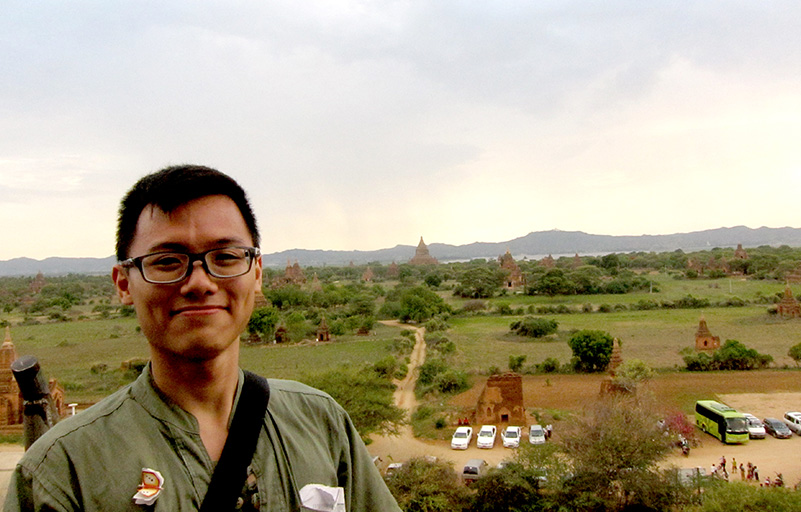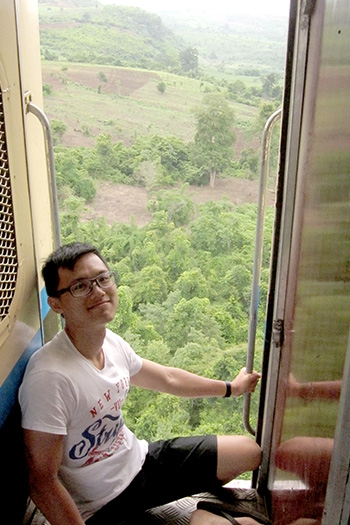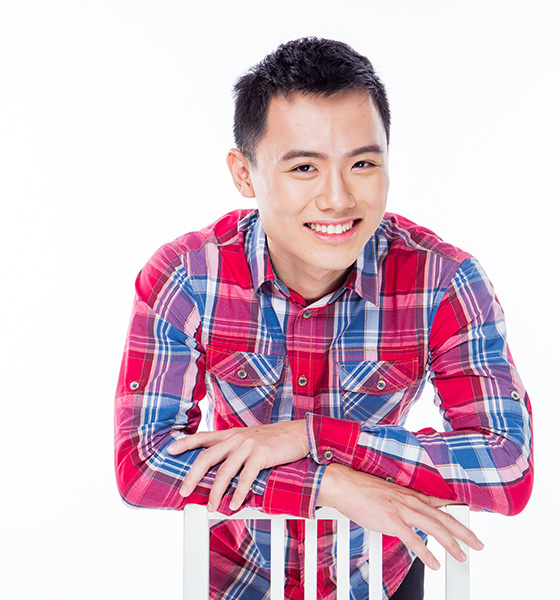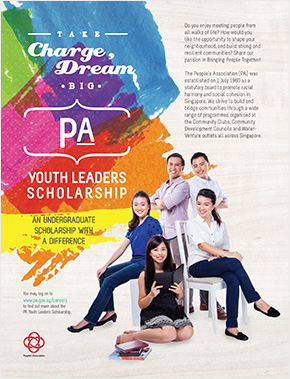S ince its establishment in 1960, the PA has endeavoured to build and bridge communities to strengthen social cohesion and racial harmony. Thanks to a network of over 1,800 grassroots organisations and Community Development Councils, the organisation has been successful in fostering bonds among Singaporeans from all walks of life.
22-year-old Seah Tiong Kiat, who is currently pursuing a Bachelor of Social Science at the Singapore Management University, is looking forward to contributing to the cause. The PA Youth Leaders Scholar is clear about his goals – he aims to be involved in youth programmes to interact with youth and help bring them closer to the community in PA.
How has your course in Social Science equipped you with the knowledge and skills for your future job at PA?
Seah Tiong Kiat: There are many reasons why people choose to educate themselves in different areas. For me, one of the purposes of education is to discover and understand more about my life so that I can make substantial self-improvements.
Studying Social Science has allowed me to have a better view of the complexities of society. This enables me to understand the big picture of certain societal patterns. But in order to do well in community-based work, there is a need for a lot of on-the-ground experience and empathy which I will not be able to obtain in a classroom setting. My university education provides me with a solid framework with which to approach my work with communities, but it is still important for me to play an active role in the community. I know that PA will equip me with plenty of opportunities to do so!
Tell us more about PA’s mission. What is the significance of its role in community-building and development?
Tiong Kiat: The mission of PA is to bring people together. One of its main functions is to create common spaces where people from all walks of life can come together, interact, mingle and bond as a society. This is done through programmes, events, courses, interest groups and services that are provided by a myriad of organisations and community clubs. PA’s aim is to be at the centre of the community and act as a bridge between people.

Seah Tiong Kiat
PA Youth Leaders Scholar
Studying: Bachelor of Social Science,
Singapore Management University
Another function of PA is to act as the intermediary between the people and the government. When the government implements policies that affect the community, such as the Pioneer Generation package, PA uses its wide local network to pass down the information quickly. It also serves as a channel for the community to express their needs and concerns to the government.
What attracted you to a career with PA? What role do you see yourself playing in the organisation in the future and how do you hope to contribute?
Tiong Kiat: I was attracted by the idea of being able to play a part in building a strong community and national identity. I feel that Singapore is at a stage where people are still struggling to find out what it means to be a Singaporean. The process of forming this identity will have a huge impact on the future of our political and social landscape. A couple of interesting ongoing projects that are targeted at shaping our national identity are the Singapore Memory Project and most recently, the SG50 project to commemorate Singapore’s 50th birthday.
As a statutory board, PA has vast resources and is in a good position to shape this identity. Working with PA will provide me with the relevant ground-based experience as well as opportunities to influence the community. I look forward to playing a part in building community identities and eventually taking on a key role in this area.

What opportunities have you enjoyed as a PA scholar? How is your scholarship preparing you to contribute to PA and the community in the future?
Tiong Kiat: I only began my scholarship term with PA recently. So far, I’ve attended the scholarship award ceremony and a Human Resources chit-chat session to get to know the people in the organisation. A fellow scholar from the previous batch also shared her experiences of working in a community club with me and it all sounded very exciting and fulfilling.
The scholarship will provide me with opportunities to interact with the community and learn about its members’ needs and desires. This will be done through internships, events and programmes that are arranged by the organisation. Above all, PA will immerse me in the community and enable me to pick up basic skills such as how to communicate effectively with different groups of people and help me learn about other practicalities of community work. This will be of help to me when I work for PA in the future. I am definitely looking forward to upcoming opportunities with the organisation.
What do you think are some of the main challenges facing PA today? How does PA hope to overcome these challenges?
Tiong Kiat: I think the two challenges that PA faces are reaching out to more diverse groups of the society and changing the general impression that the public have of PA. The organisation has been working hard to reach out to youths through various initiatives such as the PA Youth Movement. I think that targeting youths is a good move because they can be groomed to become future leaders who can in turn reach out to the community.
What advice do you have for aspiring PA scholars?
Tiong Kiat: It’s not all about the grades. PA places considerable emphasis on your performance in extra-curricular areas and the passion to work with various groups within the community. It will be helpful if you have knowledge of local affairs, especially those related to social issues.
If you like working with people and want a meaningful job that allows you to make a real impact on the community, then the PA Youth Leaders Scholarship is the one that you should apply for. Above all, you must have the passion to engage in community work!

